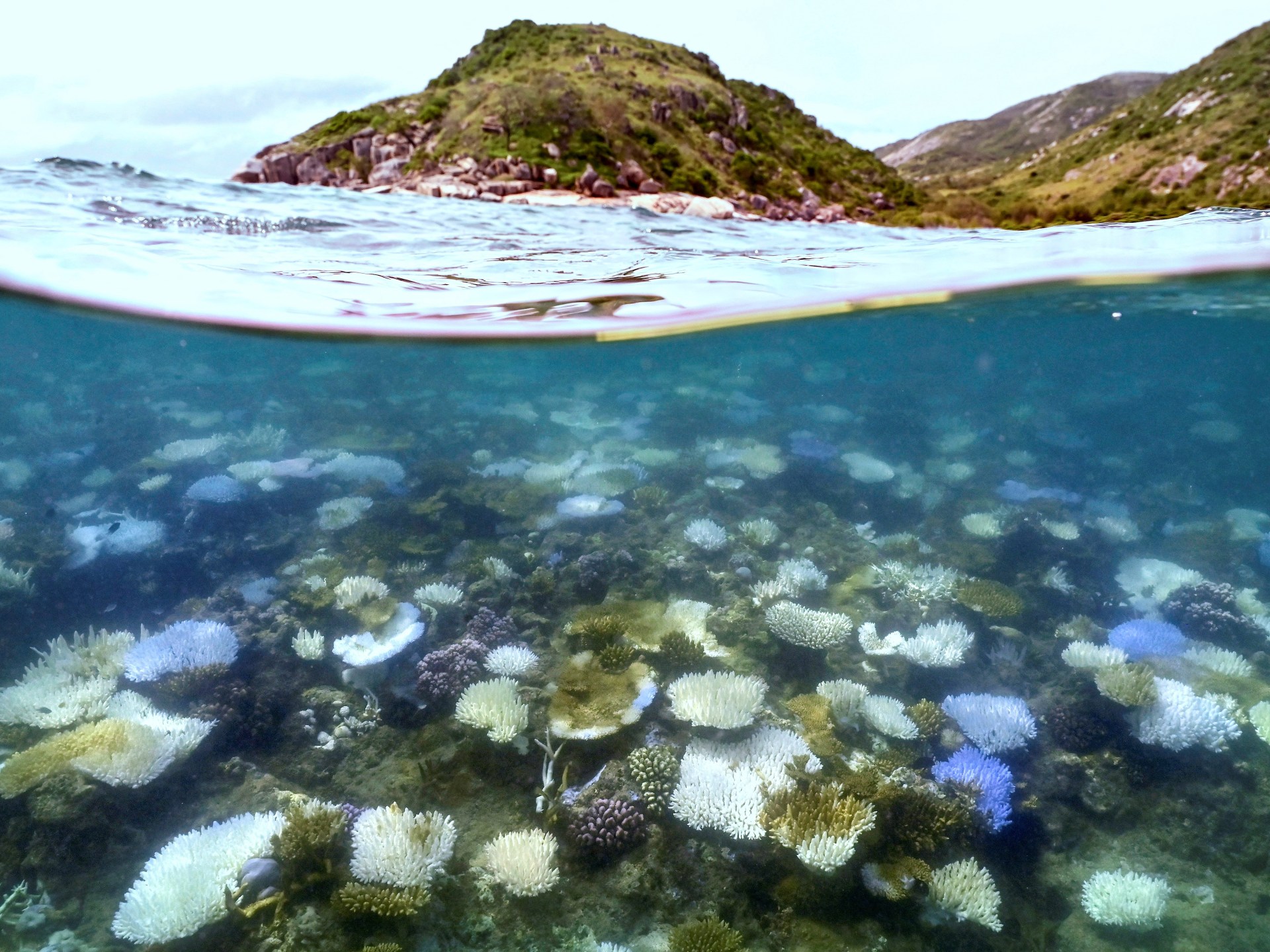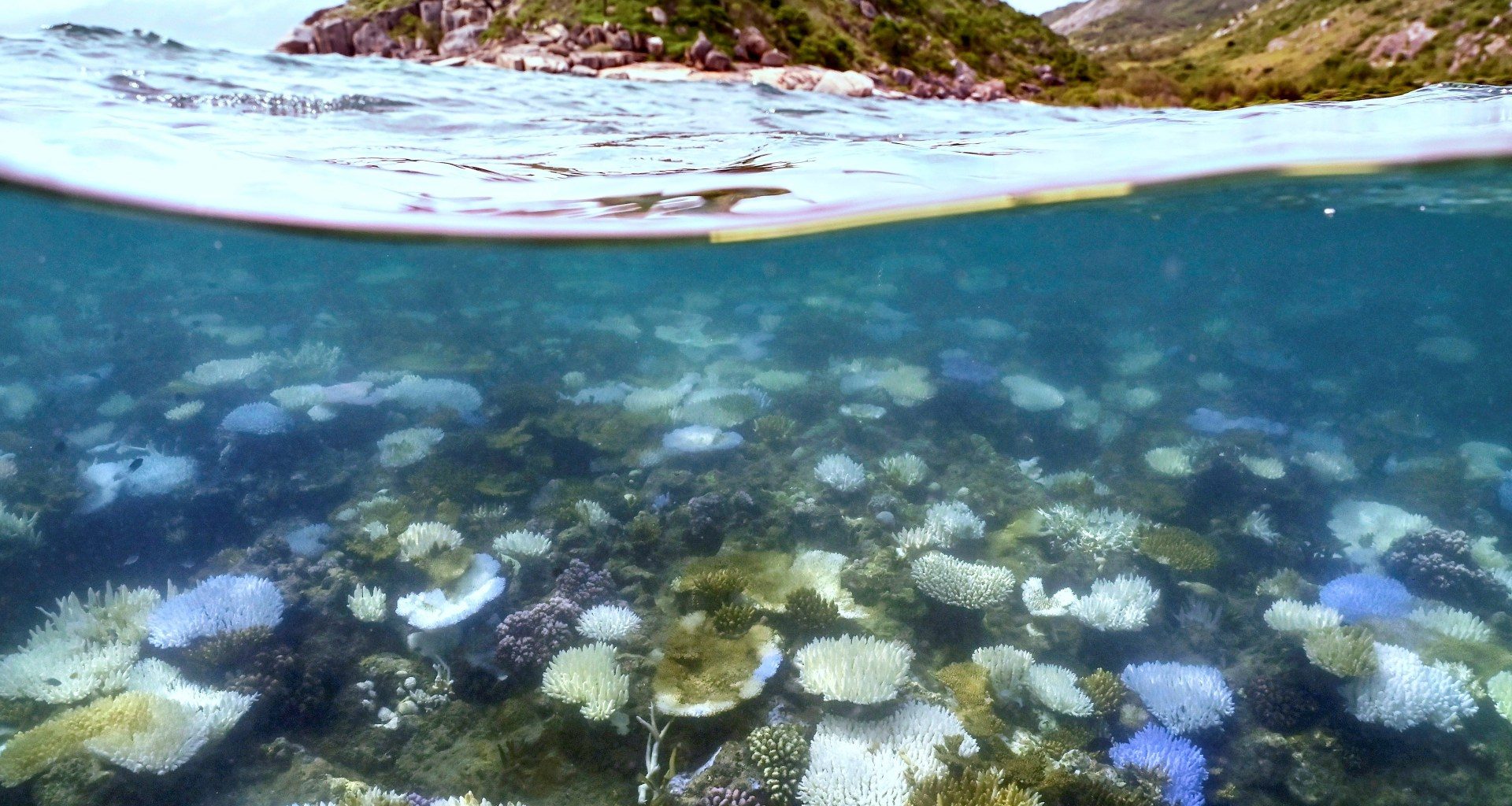
The 2,300km (1,429-mile) reef is in its fifth mass bleaching event since 2016 with aerial surveys showing the scale of damage.
Australia’s Great Barrier Reef, which stretches for some 2,300km (1,429 miles) off the country’s northeastern coast, is suffering its worst bleaching event on record.
The extent of the bleaching was revealed in aerial surveys after the government agency tasked with the reef’s management confirmed early last month that the reef had been hit by its fifth major bleaching event since 2016.
The bleaching, when corals expel the colourful microscopic algae that live in their tissues in an effort to survive, was triggered by an increase in water temperatures that began in December last year.
“This prolonged heat exposure has caused mass bleaching of coral reef communities observed within all three regions of the Great Barrier Reef,” the Great Barrier Reef Marine Park Authority said in an update on its website on Wednesday. “The combination of aerial and in-water surveys in 2024 confirm a mass bleaching event, with prevalent and extreme bleaching observed at multiple reefs in all 3
regions of the Great Barrier Reef Marine Park.”
The agency said it surveyed a total of 1,080 reefs and 79 percent of them showed some level of coral bleaching. Some 49 percent of surveyed reefs showed high to extreme levels of bleaching, it said, with the worst-affected areas in the central and southern parts of the World Heritage-listed reef.
In the southern region, thermal stress was the highest recorded from the National Oceanic and Atmospheric Administration satellite since it began operations in 1985, the agency said. Across that area, bleaching prevalence ranged from high (31-60 percent of cover bleached) to extreme (more than 90 percent of cover bleached). Only 3 percent of surveyed reefs were not bleached.
Coral reefs are living organisms and the Great Barrier Reef is considered one of the most species-rich habitats on earth. It is home to hundreds of types of coral, 1,500 fish species and 4,000 different molluscs.
Reefs also provide protection for coastal communities and are natural carbon sinks. Climate change is the biggest threat to their survival because of their sensitivity to heat.
“Only the strongest and fastest possible actions to decrease global greenhouse gas emissions will reduce the risks of thermal stress on the Reef and limit the impacts from climate change on the Great Barrier Reef,” the marine park authority said.
Corals can recover from bleaching and the agency said the full impact of the event would not be known for some time. It added that in-water surveys would continue.
Read More: World News | Entertainment News | Celeb News
Al Jazeera










